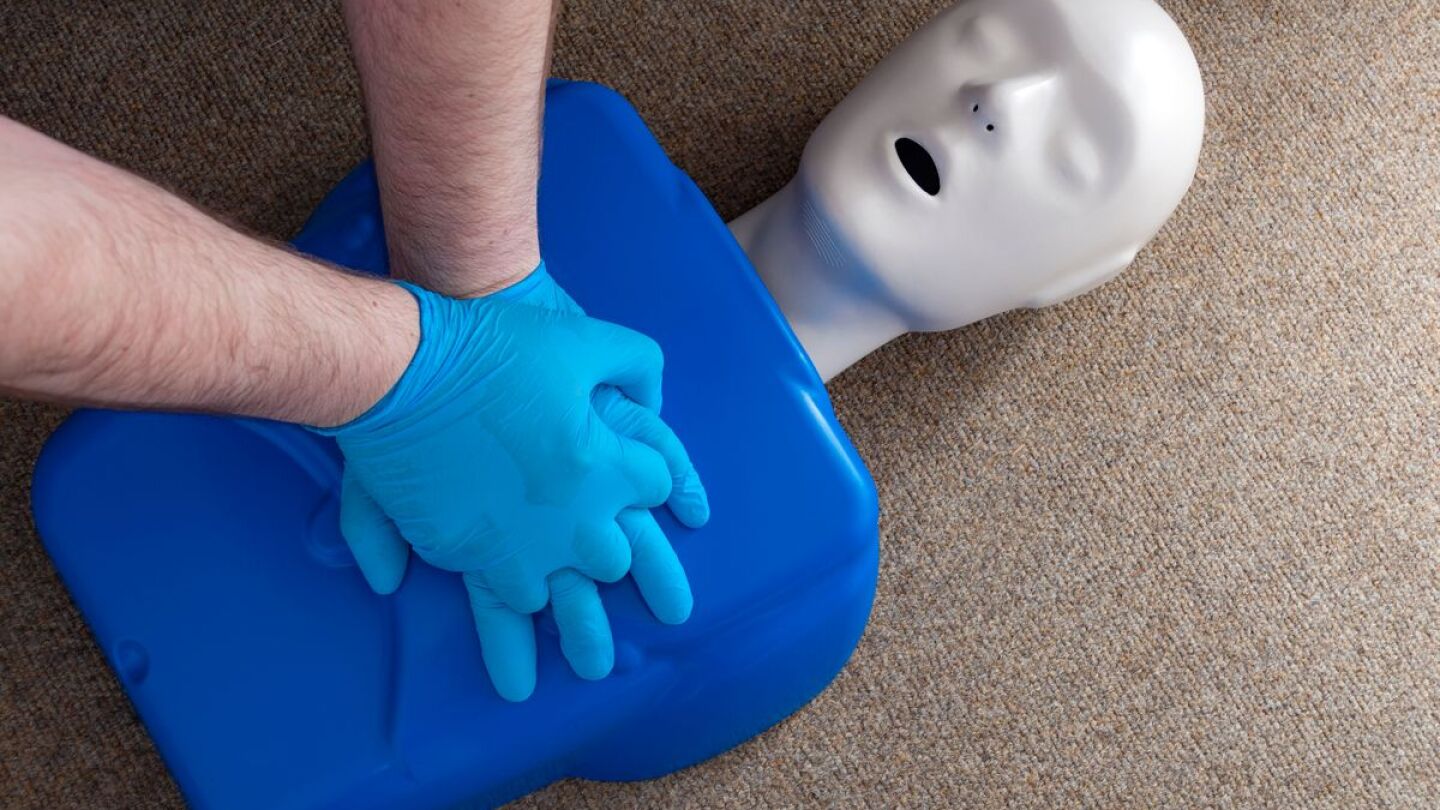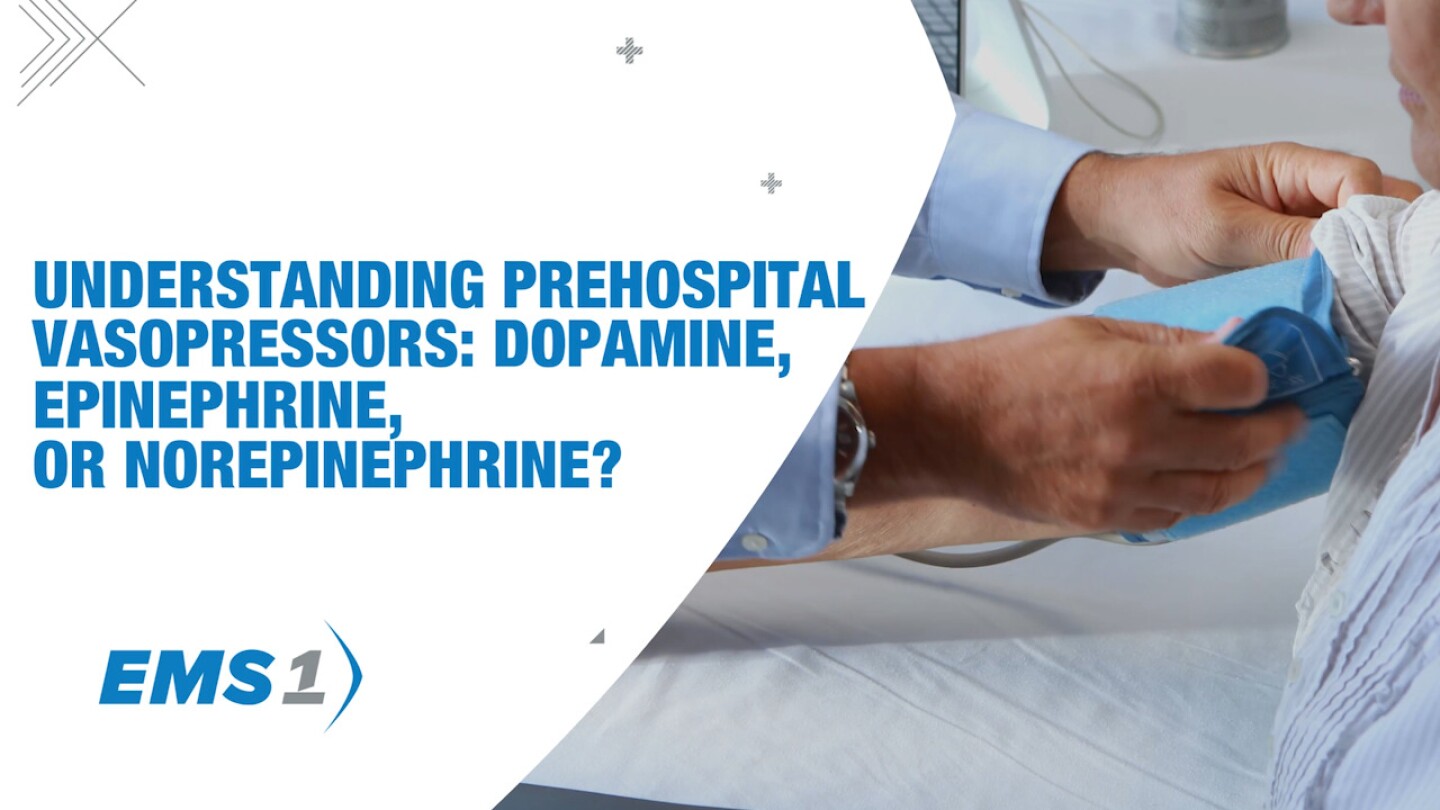Pharmacology
The pharmacology topic includes a variety of news, information, videos and feature articles about the science of drug action on biological systems.
Research Monitor
Lessons in preparing for high-risk intubations and avoiding peri-intubation hypotension
Critical insights on the safe administration of ketamine, versed, lorazepam, ativan and haloperidol
Hypothermic patients, multi-systems trauma and slippery scenes present difficult decision-making challenges for rescuers
EMS providers debate whether making IV acetaminophen the first-line option improves patient care or limits provider judgment
Sarasota County Fire Department has removed opioids from front-line apparatus and now uses IV acetaminophen to treat moderate to severe pain in the prehospital setting
The St. Paul Fire Department has expanded the use of Suboxone on advanced life support ambulances citywide
The Westford Fire Department has expanded its capabilities, allowing paramedics to provide early antibiotic treatment to patients with suspected septic shock
A $6,687 grant helped the Seekonk Fire Department purchase two IV medication infusion pumps, improving the ability to deliver lifesaving care during transport
A wrongful death lawsuit claims Hayward police and Falck paramedics repeatedly failed during the restraint and chemical sedation of a suspect, intensifying scrutiny of use of midazolam
Look for tampered packaging, excessive use and false documentation to identify a drug diversion in your EMS agency
We asked readers for advice on learning and studying pharmacology and received dozens of fantastic responses
Michael Fraley breaks down what paramedics need to know about what’s changed — and what hasn’t — in the new resuscitation guidance
In this episode learn the 5 diagnoses for altered mental status that can kill your patient emergently
A flight paramedic shares her harrowing experience of a severe allergic reaction to medication and her gratitude to the flight nurse who treated her
Examining how IM epinephrine increases treatment timing, frequency and survival
Spoiler alert, we are terrible at giving epinephrine to anaphylaxis patients. But we’re going to fix this right now!
Powell County EMS crew faces a hearing after learning that only wilderness paramedics can administer antivenom
Steve Whitehead asks the tough question: Are life-saving interventions turning deadly when managing behavioral health emergencies?
The former Action Ambulance employee alleges retaliation after reporting violations, including expired controlled substance vials, failure to restock certain controlled substances and failure to maintain inventory
Chiefs say Dr. Carl Schultz endangers patients, demoralizes crews by refusing prehospital blood transfusions, ketamine, magnesium and opioid-care pilots already used statewide
Seattle has cut overdose deaths 20% since 2024 and strengthened its Health 99 post-overdose response team
Montgomery County Hospital District (MCHD) compares the effectiveness of two parenteral analgesics in the prehospital setting
Discover actionable strategies for EMS teams to minimize errors through rest, focus and teamwork
A man claims he suffered severe health complications after being forcibly injected with ketamine by Greenwich EMS while restrained by police
A new Florida bill will require schools to train staff and ensure EpiPen access during all student activities
A comprehensive look at vasopressors: functions, differences and application strategies
Enhance your IV insertion skills with these expert tips, ensuring efficient and effective patient care in emergency situations
Relatives of James Foster Jr. filed a federal lawsuit alleging wrongful death and medical malpractice after a Sioux City paramedic injected him with the wrong drug, leading to his death
The move comes as part of a broader effort to standardize and enhance clinical practices
MOST POPULAR
- Man dies after sedation in Calif. police custody following disturbance
- EMS1 readers respond: Should IV acetaminophen replace opioids as first-line pain control?
- Judge frees Colo. paramedic convicted in death of Elijah McClain
- Maine FD begins use of new infant transport device and medication
- Former Mass. ambulance service employee files retaliation lawsuit over lax narcotics controls































